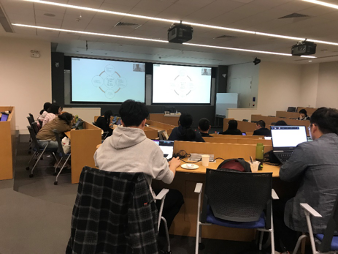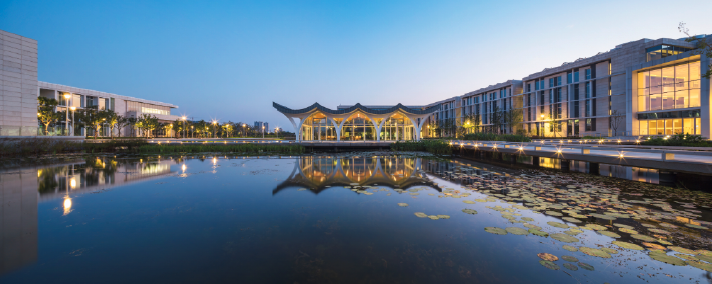About
Can courts help save the planet? In the past decade, individuals and organizations across the globe have brought an increasing number of climate lawsuits. In the US, since the 1990s courts at various levels have heard hundreds of public and private climate litigation cases, which have contributed to the development of climate policy and governance. Yet, it is in Europe and Asia that the most significant breakthroughs have been observed recently, with Courts finding their government guilty of failing to act sufficiently to address climate change. In China as well, although there are only a few cases, climate litigation is increasingly regarded as an important innovation, with a first landmark public interest lawsuit brought by NGOs against grid companies in 2018 to address renewable energy curtailment issues.
These cases have spurred important academic and public debates about the role that litigation can play to hold emitters and governments accountable, about the legal basis for such actions in statutory law, case law, constitutional law, international law and fundamental rights law, as well as about the role of courts in legislative and policy developments to address climate change. Yet, legal systems vary and, although practitioners and scholars have followed and learned from what happens in other jurisdictions, there is still a lack of cross-jurisdictional comparison and global academic dialogue about the role that litigation already plays and could play in climate change governance.
The international seminar organized in hybrid format at Duke Kunshan University on 24 October 2020 brought together 29 international and Chinese scholars and legal practitioners with first-hand experience in climate litigation to meet and exchange about these issues. Through case studies and cross-country analysis spanning the American, European and Asian continents, speakers discussed the potential and limitations of climate litigation as a new channel to combat climate change, including past development and trends, strengths, challenges, and implications. It also provided a unique opportunity for Chinese stakeholders to exchange with international counterparts and share their perspective on domestic environmental litigation.
The conference was attended in person and online by over 80 students from DKU, Duke University and other Universities and organizations. As a follow-up, students from the International Master of Environmental Policy at DKU carried out individual interviews with each of the speakers to explore in more depth their professional background, motivation to engage with climate justice and to hear more from them on some of the ideas or concepts that were put forward and debated at the conference. This website is aimed at making all this material available in English and Chinese to wider audiences.

法院可以帮助拯救地球吗?在过去的十年中,全球的个人和组织提出了越来越多的气候诉讼。在美国,自1990年代以来,各级法院已经收到了数百起公共和私人的气候诉讼案件,这些案件为气候政策的制定以及气候治理做出了贡献。然而,近期最引人关注的突破发生在欧洲和亚洲:最高法院认为其政府因未能采取充分行动应对气候变化而被判有罪;在中国,虽然案件目前较少, 但是气候诉讼日益被视为一项重要的创新,其中第一项具有里程碑意义的公益诉讼由非政府组织于2018年提起,以解决国家电网公司的弃风弃光问题。
这些案件引发了学术界和公众的广泛讨论,包括诉讼在令排放者和政府承担应尽责任方面可发挥的作用,此类行为在成文法,判例法,宪法,国际法和基本权利法中的法律依据,以及法院在解决气候变化的立法和政策制定中的作用。法律从业者和学者们尽管已经了解并学习了其他国家的司法判决,然而,由于法律制度各不相同,对于诉讼已经在气候变化治理中已发挥的作用和可能发挥的作用,仍然缺乏跨区域的比较和全球范围的学术对话。
2020年10月24日于昆山杜克大学举办的线上线下混合模式的国际研讨会,聚集了29位国际国内学者以及具有气候诉讼第一手经验的法律从业人员就相关问题进行交流。通过案例研究和跨国(美洲,欧洲,亚洲)对比分析,讲者们讨论了气候诉讼作为应对气候变化新渠道的潜力和局限性,包括分析气候诉讼过去的发展和未来的趋势,以及气候诉讼的优势,面对的挑战和产生的影响。本场会议为国内的律师和从业人员提供了独特的机会,使其能够与国际同行就中国国内的环境诉讼展开对话。
来自昆山杜克大学,杜克大学以及其他大学和机构的80多名学生通过线上或线下的方式出席了会议。会议后,来自昆山杜克大学环境政策硕士专业的学生分别与每个演讲者进行了访谈,以更深入地了解演讲者的专业背景,参与气候正义的动力以及其在会议上展开讨论的观点与概念。该网页旨在将所有这些材料以英汉双语的形式提供给更多的观众。
This event site was prepared by Prof Coraline Goron, who assumes responsibility for any mistakes or shortcomings. We would like to thank Zhixian Luo, Lehe Xu and Xiaohan Cui for their help with the texts;. Xiaohan Cui, Yue Zou, Chenhan Shao, Jiaming liu, Jing Gu, Mengfan Gong, Muye Huang, Rui Jiang, Wenrui Qu, Yufei Dong, Yuhe Jin and Alberto Najarro for their help with transcription and translation; Mingyu Zhou for the design; Jasper Cai from LRFR for the professional video editing and Josh Wilson at Duke's Nicholas Institute for the web design and editing.





